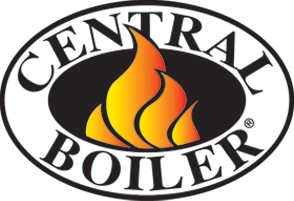Your HVAC (Heating, Ventilation, and Air Conditioning) system is a crucial part of maintaining comfort in your home. Like any complex system, it requires regular maintenance to function efficiently and avoid breakdowns. Despite this, many homeowners neglect routine HVAC maintenance, often leading to costly repairs or even complete system failures. In this blog, we’ll discuss the importance of regular HVAC maintenance, the benefits it provides, and what tasks should be included in a comprehensive maintenance plan.
Enhanced Energy Efficiency
One of the primary benefits of regular HVAC maintenance is improved energy efficiency. Over time, dust, dirt, and debris can accumulate in your system, reducing its efficiency and causing it to work harder to heat or cool your home. Routine maintenance ensures that your system is clean and operating at peak performance.
- Clean Filters and Coils: Replacing or cleaning air filters and coils during maintenance prevents clogs that can restrict airflow and reduce efficiency. Clean coils also improve heat exchange, leading to more effective cooling and heating.
- Efficient Operation: A well-maintained HVAC system operates more efficiently, using less energy to achieve the same level of comfort. This translates to lower energy bills and reduced wear and tear on the system.
Regular maintenance not only keeps your HVAC system running smoothly but also helps you save money on your utility bills by ensuring that your system isn’t using more energy than necessary.
Prolonged System Lifespan
An HVAC system is a significant investment, and homeowners naturally want to get the most out of it. Regular maintenance can help extend the lifespan of your HVAC system by addressing minor issues before they become major problems.
- Preventive Care: Maintenance tasks like lubricating moving parts, tightening electrical connections, and checking refrigerant levels prevent small issues from causing significant damage. This proactive approach helps avoid expensive repairs and premature system replacements.
- Reduced Wear and Tear: A well-maintained system experiences less strain during operation, leading to fewer breakdowns and a longer overall lifespan. This means you won’t need to replace your HVAC system as often, saving you money in the long run.
By investing in regular maintenance, you’re effectively protecting your HVAC system and ensuring that it continues to provide reliable comfort for many years.
Improved Indoor Air Quality
Your HVAC system plays a vital role in maintaining indoor air quality. Over time, dust, allergens, and other pollutants can accumulate in your system, circulating through your home and potentially causing health issues. Regular maintenance helps keep your indoor air clean and healthy.
- Filter Replacement: Regularly replacing air filters during maintenance is essential for trapping dust, pollen, and other airborne particles that can affect indoor air quality. High-efficiency filters, such as HEPA filters, can be particularly effective in homes with allergy sufferers.
- Duct Cleaning: Over time, dust and debris can build up in your ductwork, reducing air quality and system efficiency. Professional duct cleaning as part of your maintenance routine can remove these contaminants and improve overall air quality.
Regular maintenance ensures that your HVAC system is not only keeping your home comfortable but also contributing to a healthier living environment by reducing the presence of airborne pollutants.
Reduced Risk of Breakdowns
Unexpected HVAC system breakdowns can be inconvenient and expensive, especially during extreme weather conditions. Regular maintenance significantly reduces the risk of system failures by identifying and addressing potential issues before they lead to a breakdown.
- Early Detection: During routine maintenance, technicians can spot signs of wear or damage, such as frayed belts, corroded electrical components, or low refrigerant levels. Addressing these issues early prevents them from escalating into more severe problems that could cause a system shutdown.
- Consistent Performance: A well-maintained HVAC system is more reliable, providing consistent heating and cooling throughout the year without unexpected interruptions.
By scheduling regular maintenance, you can enjoy peace of mind knowing that your HVAC system is less likely to break down when you need it most.
Warranty Protection
Many HVAC manufacturers require regular maintenance as a condition of their warranties. Failing to schedule routine maintenance can void your warranty, leaving you responsible for the full cost of repairs or replacement if something goes wrong.
- Compliance with Warranty Terms: Regular maintenance ensures that you comply with the terms of your HVAC system’s warranty, protecting you from unexpected repair costs. Keep records of all maintenance services to provide proof if a warranty claim is necessary.
- Long-Term Savings: Protecting your warranty through regular maintenance can save you money on repairs and replacements, making it a smart financial decision in the long run.
- Ensuring that your HVAC system is maintained according to the manufacturer’s recommendations is crucial for keeping your warranty intact and avoiding unnecessary expenses.
Environmental Benefits
Regular HVAC maintenance also has environmental benefits. A well-maintained system uses less energy, reducing your carbon footprint and contributing to a more sustainable future.
- Energy Conservation: By keeping your HVAC system in top condition, you’re reducing its energy consumption and the associated greenhouse gas emissions. This not only lowers your utility bills but also helps protect the environment.
- Proper Refrigerant Handling: If your HVAC system uses refrigerants, regular maintenance ensures that any leaks are promptly repaired, preventing harmful refrigerants from being released into the atmosphere.
By prioritizing regular maintenance, you’re not only benefiting your home and wallet but also making a positive impact on the environment.
What Should Be Included in HVAC Maintenance?
A comprehensive HVAC maintenance plan should include a variety of tasks that address different aspects of your system. Here’s what you can expect during a typical maintenance visit:
- Inspection of System Components: A thorough inspection of all system components, including the thermostat, controls, electrical connections, and refrigerant levels, to ensure everything is functioning correctly.
- Cleaning: Cleaning of key components, such as the evaporator and condenser coils, blower components, and drain lines, to prevent buildup that can reduce efficiency and air quality.
- Lubrication: Lubrication of moving parts, such as motors and bearings, to reduce friction and prevent wear and tear.
- Filter Replacement: Replacement of air filters to ensure proper airflow and filtration, which is crucial for maintaining indoor air quality and system efficiency.
- System Testing: Testing of the system’s operation, including startup, shutdown, and general performance, to ensure it’s running smoothly and efficiently.
Scheduling maintenance at least twice a year—once in the spring before the cooling season and once in the fall before the heating season—ensures your HVAC system is ready to perform when you need it most.
Conclusion
Regular HVAC maintenance is essential for ensuring the efficiency, longevity, and reliability of your system. By keeping your system well-maintained, you’ll enjoy improved energy efficiency, lower utility bills, better indoor air quality, and reduced risk of breakdowns. Additionally, regular maintenance protects your warranty and contributes to a more sustainable environment. Don’t wait for a problem to









